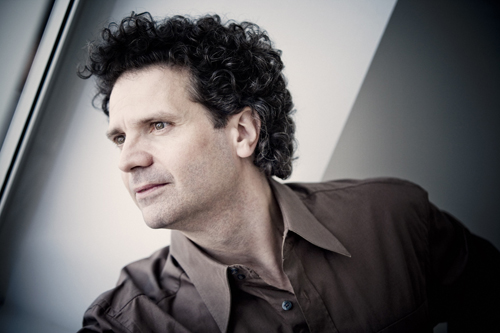 Zurich, Tonhalle, Orchestre de Paris: Paavo Järvi (conductor), Andreas Haefliger (piano) 20.11.12 (JR)
Zurich, Tonhalle, Orchestre de Paris: Paavo Järvi (conductor), Andreas Haefliger (piano) 20.11.12 (JR)
Debussy : Prélude à l’après-midi d’un faune
Mozart: Piano Concerto No. 24
Stravinsky: Rite of Spring

This concert presented the welcome opportunity of hearing France’s premier orchestra with their relatively new Principal Conductor Paavo Järvi, and Swiss-born Andreas Haefliger at the keyboard.
The orchestra had originally programmed Ravel’s Valses nobles et sentimentales but replaced it with Debussy’s Prélude à l’après-midi d’un faune. Järvi allowed the music to glide and breathe, the orchestra shimmered diaphanously, the audience were entranced throughout.
Mozart’s 24th piano concerto followed in the safe hands of Andreas Haefliger. Nothing went wrong, but nothing went particularly right. There were no audible insights and the performance rarely strayed beyond the routine. Haefliger’s delicacy of touch was however impressive, particularly in the slow movement.
By way of an encore at the end of the first half of the concert, pianist and orchestra played a work by modern French composer Karol Beffa entitled La vie anterieure, premiered by the orchestra just a week ago in Paris. This put the Mozart somewhat in the shade with its jazzy rhythms reminiscent of Milhaud and exotic sounds reminiscent of Messaien. Haefliger certainly seemed to be more engaged than in the Mozart. The piece, a mite overlong for an encore, outstayed its welcome and twinkled gently and prettily into nothingness.
It became clear however that most rehearsal time had been devoted to the Rite of Spring which received a blistering portrayal. Written on the shores of Lake Geneva in 1912, one can still fathom today why it must have been both a musical scandal and a triumph when first performed a year later, in Paris under Pierre Monteux.
I feared the Parisian orchestra in its suave haute couture uniforms (somewhat resembling Dickensian undertakers) might not be quite savage enough but I need not have feared. From the very opening from the fine bassoonist, it was evident that suave elegance had been sidelined effectively; Järvi had marshalled and drilled his Gallic forces for a vigorous, virtuosic and impressive display. There were many features which the conductor brought out which one often fails to hear in more peremptory performances. It was certainly loud enough, the percussion section saw to that, the youngster on washboard and cymbals even inserting earplugs at several stages. Star of the show however was the balletic principal timpanist who stood throughout to aid downward momentum. The audience erupted at the end, the piece – in competent hands such as Järvi’s – can still shock.
The audience went home humming Bizet’s charming L’Arlesienne suite, a perfect encore.
Thank you, Migros, for the ample supply of cough sweets (in waxed paper) in the foyer – they worked, thankfully, for the majority of the bronchial audience. Other orchestras and sponsors, please take note!
John Rhodes